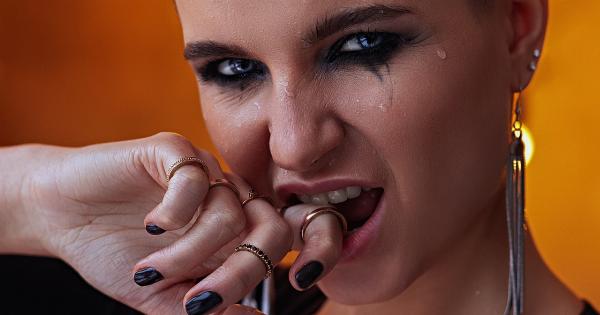Nail biting is one of the most common habits we pick up. We do it when we’re anxious, stressed, or just plain bored. However, many of us are unaware of the negative impact it has on our health.
In this article, we’ll look at seven ways nail biting is harming your health.
1. It spreads germs
Your hands carry millions of bacteria, and when you bite your nails, you’re introducing these germs into your mouth and potentially infecting your body.
This can lead to illnesses such as the common cold, flu, and more serious infections such as hepatitis and COVID-19.
2. It damages your teeth and gums
Biting your nails can be tough on your teeth as the habit can cause your front teeth to shift out of place, leading to bite problems. The constant pressure can also weaken your teeth and make them more susceptible to chips and cracks.
Moreover, it can damage your gums, which can cause gum recession and may lead to tooth loss over time.
3. It can cause infections around your nails
Biting your nails can cause small tears in the skin around your nails, which can allow harmful bacteria, viruses and fungi to enter.
This can lead to painful infections such as paronychia, which is an infection that affects the skin along the sides of the nail. It can also lead to more serious infections in rare cases.
4. It can damage your digestive system
When you bite your nails, you’re not just ingesting bacteria, viruses and fungi, but you’re also swallowing little bits of your nails too.
This can cause damage to your digestive system, particularly your stomach and intestines, which can lead to digestive problems over time.
5. It can lead to mental health issues
Nail biting can be a sign of anxiety, stress, or other mental health issues. Moreover, the habit can lead to feelings of shame, guilt, and embarrassment, which can exacerbate these issues.
Over time, this can lead to more significant mental health problems such as depression and anxiety disorder.
6. It can affect your hand hygiene
When you bite your nails, you’re less likely to wash your hands regularly because you may not want to damage your nails that you’ve worked so hard to grow.
This can lead to a build-up of bacteria, viruses and fungi on your hands, and increase your risk of infection.
7. It can be a sign of deeper underlying issues
If nail biting is a persistent habit, it may be a sign of underlying emotional or psychological issues. It may be a way of managing stress, anxiety or other mental health problems.
If you’re struggling to quit, it may be useful to talk to a professional to explore these underlying issues and develop more positive ways to manage emotions.
Conclusion
Nail biting is an unhealthy habit that can cause physical and mental health issues over time. From spreading germs to damaging your teeth and gums and even leading to mental health problems, there are many reasons to quit this habit.
If you’re struggling, there are many resources available to help you quit, including over-the-counter remedies, therapy, and other stress management techniques. The benefits of quitting nail biting are significant, and it’s never too late to start.






























